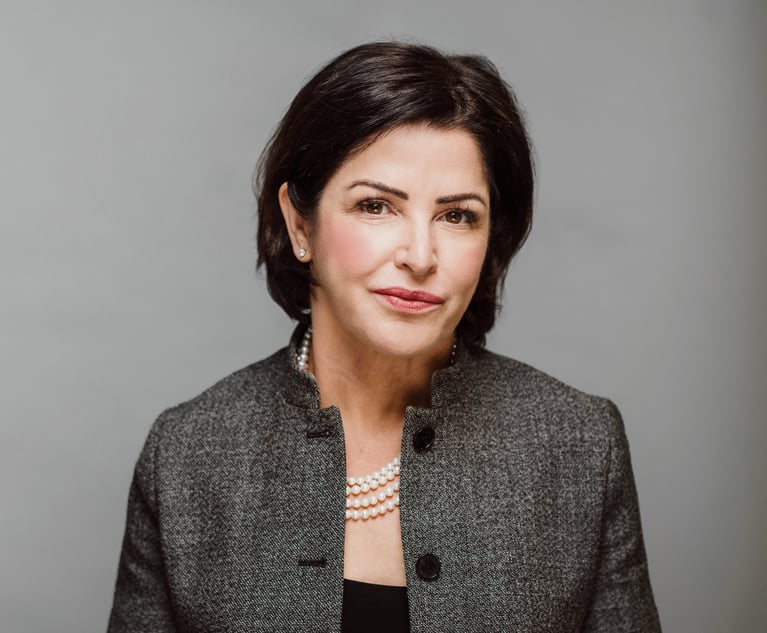Brexit Fallout, Tech and Structural Change: In-House Lawyers Share Their Predictions For 2020
In-house leaders from BT, Pizza Hut, Notonthehighstreet.com and others discuss their predictions for the legal sector as we enter a new decade.
January 07, 2020 at 05:15 AM
6 minute read
There is ever-increasing pressure on senior in-house lawyers to act as not just legal advisers, but as leaders of their organisations, helping hone management decisions that can shape companies for years to come.
This year, in-house teams have been addressing the tripartite assault of nationwide restructurings in challenging times for consumer-facing companies, and unending developments in technology, all against the backdrop of a Brexit that, following last month's general election, is looking perhaps just a shade more tangible.
These challenges look set to shape in-house teams' strategies and priorities well into 2020, as several leading in-house lawyers explain below.
Leeanne Whaley – legal director at BT
 Leeanne Whaley
Leeanne WhaleyFor Whaley, "getting our tech tools right" is a key priority to "ensure the bread and butter of legal work is getting done at the right pace, efficiently and within an agreed risk appetite level".
Whaley adds that advances in artificial intelligence and smart contracts "will go some way" towards filling the gap between the traditional offering of external law firms and the services offered by legal process outsourcing providers.
"Legal functions need to look to the market to help them get the mix right to get 'business as usual' work done well," she says. "There is still some maturing to do in that space as the market is going through its own transformation with some types of managed legal services offerings more mature than others."
Dana Grey – director of legal, compliance and ethics at the Pension Protection Fund
 Dana Grey
Dana GreyGrey anticipates a "further shift" in the way in-house teams view conduct, diversity and inclusion: "Businesses will no longer see these two key areas as working interdependently from each other because it is hard to have one without the other."
She believes "you cannot have good conduct, and the best outcomes for clients, without having some sort of diversity of thought or inclusivity and it is very hard to have a diverse and inclusive workforce and reap the benefits it brings without having the right conduct".
Nick Hartigan - head of legal at Kier Group
Hartigan says standardisation in the legal services sector will be an interesting development, as it is gaining traction for mainstream contracts.
Something to watch out for will be "whether in-house teams will throw their weight behind the standardisation movement at a time when in-house teams are under never-ending cost and resource pressures," he says. Hartigan believes this is "a critical gating milestone to structural change in the legal services market".
He also predicts a focus on increasingly rounded lawyers in 2020, which is "quite rightly becoming a key priority for high performing in-house teams at junior- and mid-level".
In light of initiatives such as the Bionic Lawyer project, Hartigan anticipates "more forward-looking law firms hiring specialists to build out lawyer capabilities in areas like presentation skills, resilience and impactfulness, and in turn, "offering the use of these specialists to clients".
Henry Kennedy - general counsel at Imagination
 Henry Kennedy
Henry KennedyKennedy expects in-house lawyers in a variety of different sectors, including in the experiential marketing sector, will need to "get to grips with the new and creative use cases for facial recognition technology" in 2020, "so that their businesses can use this technology to push boundaries but within the framework of the law".
Katherine Woods – deputy general counsel at Mitie
 Katherine Woods
Katherine WoodsWoods hopes the industry will enjoy some stability. Of particular interest will be how the sector reacts after "a volatile few months", when Brexit goes ahead.
Another notable move for the market in 2020 will be in-house teams increasingly using flexible ways of resourcing, says Woods, as relationships with those providing short-term resource "frees up capacity to focus on the more strategic side of things".
Sarah Binder – general counsel at Pizza Hut
 Sarah Binder
Sarah BinderFor Binder, the focus will be the "implementation of targeted rather than wholesale solutions" which can "solve challenges specific to in-house legal departments".
With in-house lawyers appeased by a general election result that has brought a degree of certainty to the markets, Binder predicts that, assuming Brexit goes ahead in early 2020, there will be a focus on "the requirements in the new trade deals, both with the EU and other key trading partners going forward".
Well-being at work is equally pivotal for in-house lawyers in 2020: "As the breadth of the role of in-house legal functions continues to extend, it continues to be more important than ever to ensure employees are seeking to achieve a work-life balance – especially for those who may have exited private practice for that reason."
Kate Burns – general counsel at Notonthehighstreet.com
 Kate Burns
Kate BurnsBurns echoes others in highlighting the importance of technology for in-house lawyers in the next year, with regulators focusing on digital, particularly relating to its impact on consumers and the users of the services it facilitates.
"We welcome any laws that encourage transparency and fairness," she says, adding that one hope is that regulators will "engage with the businesses involved so that we can ensure there is a clear understanding of how we operate before the relevant rules are finalised".
This content has been archived. It is available through our partners, LexisNexis® and Bloomberg Law.
To view this content, please continue to their sites.
Not a Lexis Subscriber?
Subscribe Now
Not a Bloomberg Law Subscriber?
Subscribe Now
NOT FOR REPRINT
© 2025 ALM Global, LLC, All Rights Reserved. Request academic re-use from www.copyright.com. All other uses, submit a request to [email protected]. For more information visit Asset & Logo Licensing.
You Might Like
View All
Pallas Partners Founder On the Disputes Trends to Look Out For in 2025
4 minute read
What to Expect From Teresa Ribera, the EU‘s New Competition Commissioner
6 minute read
Trending Stories
Who Got The Work
J. Brugh Lower of Gibbons has entered an appearance for industrial equipment supplier Devco Corporation in a pending trademark infringement lawsuit. The suit, accusing the defendant of selling knock-off Graco products, was filed Dec. 18 in New Jersey District Court by Rivkin Radler on behalf of Graco Inc. and Graco Minnesota. The case, assigned to U.S. District Judge Zahid N. Quraishi, is 3:24-cv-11294, Graco Inc. et al v. Devco Corporation.
Who Got The Work
Rebecca Maller-Stein and Kent A. Yalowitz of Arnold & Porter Kaye Scholer have entered their appearances for Hanaco Venture Capital and its executives, Lior Prosor and David Frankel, in a pending securities lawsuit. The action, filed on Dec. 24 in New York Southern District Court by Zell, Aron & Co. on behalf of Goldeneye Advisors, accuses the defendants of negligently and fraudulently managing the plaintiff's $1 million investment. The case, assigned to U.S. District Judge Vernon S. Broderick, is 1:24-cv-09918, Goldeneye Advisors, LLC v. Hanaco Venture Capital, Ltd. et al.
Who Got The Work
Attorneys from A&O Shearman has stepped in as defense counsel for Toronto-Dominion Bank and other defendants in a pending securities class action. The suit, filed Dec. 11 in New York Southern District Court by Bleichmar Fonti & Auld, accuses the defendants of concealing the bank's 'pervasive' deficiencies in regards to its compliance with the Bank Secrecy Act and the quality of its anti-money laundering controls. The case, assigned to U.S. District Judge Arun Subramanian, is 1:24-cv-09445, Gonzalez v. The Toronto-Dominion Bank et al.
Who Got The Work
Crown Castle International, a Pennsylvania company providing shared communications infrastructure, has turned to Luke D. Wolf of Gordon Rees Scully Mansukhani to fend off a pending breach-of-contract lawsuit. The court action, filed Nov. 25 in Michigan Eastern District Court by Hooper Hathaway PC on behalf of The Town Residences LLC, accuses Crown Castle of failing to transfer approximately $30,000 in utility payments from T-Mobile in breach of a roof-top lease and assignment agreement. The case, assigned to U.S. District Judge Susan K. Declercq, is 2:24-cv-13131, The Town Residences LLC v. T-Mobile US, Inc. et al.
Who Got The Work
Wilfred P. Coronato and Daniel M. Schwartz of McCarter & English have stepped in as defense counsel to Electrolux Home Products Inc. in a pending product liability lawsuit. The court action, filed Nov. 26 in New York Eastern District Court by Poulos Lopiccolo PC and Nagel Rice LLP on behalf of David Stern, alleges that the defendant's refrigerators’ drawers and shelving repeatedly break and fall apart within months after purchase. The case, assigned to U.S. District Judge Joan M. Azrack, is 2:24-cv-08204, Stern v. Electrolux Home Products, Inc.
Featured Firms
Law Offices of Gary Martin Hays & Associates, P.C.
(470) 294-1674
Law Offices of Mark E. Salomone
(857) 444-6468
Smith & Hassler
(713) 739-1250










